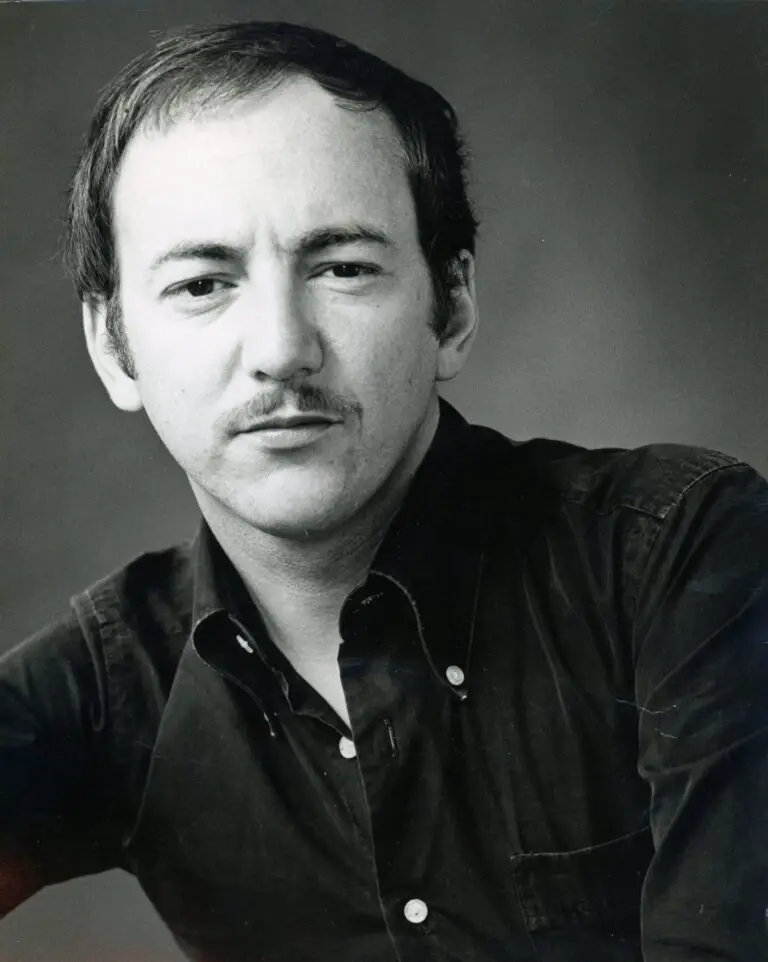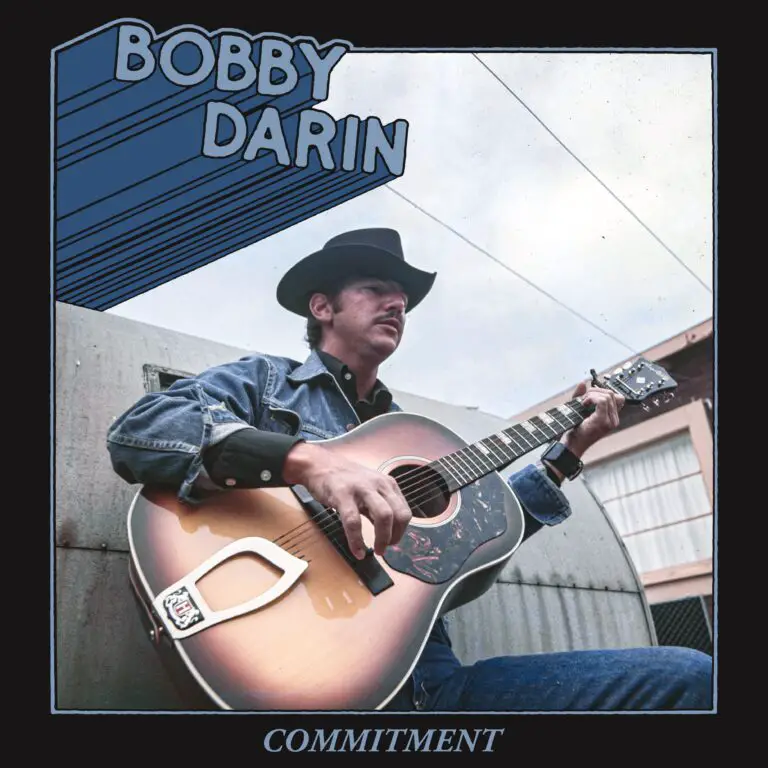Bobby Darin, a multi-genre star and activist known for his talents in the ’60s and ’70s, has announced his first ever digital release of two landmark ’60s albums, including Born Walden Robert Cassotto and Commitment.

Born as Walden Robert Cassotto in East Harlem, Darin was raised by his grandmother Polly and fell in love with music in his teens. He could play piano, drums, and guitar, and later added harmonica and xylophone to his repertoire. He later moved to the Bronx, where he graduated from the prestigious Bronx High School of Science. Later, he went to Hunter College but quickly dropped out after two semesters to pursue an acting career. He coined his stage name from the actor Darren McGavin later in his career, but his legal name remains Cassotto.
Bobby Darin was, by any definition, a superstar – a chart-topping, multimillion-selling, Grammy Award-winning singer-songwriter, a Golden Globe-winning actor, visionary entrepreneur, and committed political activist. By 1966 the 30-year-old was already more than a decade into his one-of-a-kind career, his diverse body of work characterized by frequent changes in musical direction, spanning pop and cabaret to show tunes and contemporary folk.
Restless and daring, Darin refused to be constrained by genre, instead placing his signature vocal style upon rock ‘n’ roll, pop, country and western, folk, big band, and jazz. The result was a seemingly endless string of top 10 hits, including “Splish Splash,” “Queen of the Hop,” “Dream Lover,” “Beyond the Sea,” and “If I Were a Carpenter,” the latter found on 1966’s If I Was A Carpenter (recently re-released by Direction Records and available everywhere now).
While he appeared to be “living the life,” the shifting cultural winds and strains of celebrity life affected his professional and personal successes, from his 1967 divorce from Sandra Dee and the traumatic uncovering of family revelations, on top of a heart condition sustained following childhood bouts with rheumatic fever.

“In terms of his career, the constant hits and the glory of his early days were long gone by this point,” says Dodd Darin, the only son of Bobby Darin and Hollywood sweetheart Sandra Dee. “Gone also was his relentless need to be at the top of the entertainment industry. The brashness and bravado that was so evident in his youth had been mellowed. The changing music scene and his perceived lesser place, combined with a serious medical condition, will humble a man.”
While his public persona was all bright lights and glamour, Darin was, like so many of his era, driven and inspired by the generational shifts and social upheaval of the 1960s. Despite his weakened health, Darin devoted nearly all his free time towards multiple causes: such as tirelessly campaigning for his friend Robert F. Kennedy until his assassination in June 1968. Shattered by Kennedy’s death and disheartened with the changing world around him, Darin withdrew from the spotlight and embarked on an unlikely personal journey to convey his truest self. He swapped his crooner’s tuxedo for folk singer denim, his toupee for an outlaw mustache, and a Beverly Hills mansion for a secluded trailer at Pfeiffer Beach in Big Sur.
More importantly, Darin was determined to express himself through his own songwriting, penning two albums worth of original songs that in many ways pre-date the singer-songwriter movement that would bloom in the early 1970s. Though the voice heard on 1968’s Born Walden Robert Cassotto was familiar, the songs were something very different than Darin’s previous fare. Gone was the big band pop of his biggest hits, the brass, and glamour in favor of arrangements inspired by contemporary folk rock, country, and soul.
Lyrically, Born Walden Robert Cassotto began to explore a range of issues – the environment, loss of faith, capitalism, and police brutality. “Long Line Rider,” tells the timely tale of three skeletons found on an Arkansas prison farm, while “Change” sees Darin explicitly examining his own seismic personal and creative shifts, singing, “Get yourself up off your past, friend//There’s so much to rearrange//Tomorrow sits right next to never//Damned if what your feelin’ isn’t change.”
Fearless, compelling, and undoubtedly cathartic, Born Walden Robert Cassotto set the stage for an even braver work. Released under the name “Bob Darin”, Commitment is even grittier than its predecessor. From the counterculture anthem “Me and My Hohner” and the soul-searching “Sausalito” to the wryly autobiographical “Distractions (Part 1)” the album’s studio experimentation and songcraft affirms Darin’s generational talent of uniquely c crossing the borders of age and politics.
The evolution from Bobby Darin to Bob Darin was not without its headwinds, however. The music critics, fans, and industry folks didn’t know what to make of the albums as they were such a large departure from the Darin they knew. They did not really chart or achieve commercial success. His longtime friend Dick Clark told him he was ‘a latter-day hippie and to put his tuxedo back on.’ The Landmark was paying him $40,000 a week and people were walking out because he refused to do the old hits. He told them, ‘That was yesterday and the door is right over there.’ Elvis was a genuine friend and came to see his show and told him, ‘Bobby, do the hits.’ I believe he was brave and acted on his conscience by doing the material he was doing. If his career took a hit – and it did – so be it; at least he could sleep at night.
Dodd Darin
Sadly, in December 1973, Bobby Darin fell ill and died in a Los Angeles hospital at just 37 years old following emergency open heart surgery. Darin’s remarkable legacy has only grown in the years that followed, with honors including induction in both the Rock and Roll Hall of Fame and Songwriters Hall of Fame, a Grammy Lifetime Achievement Award, an award-winning stage musical, a Golden Globe-nominated film biography, and multiple top-selling career anthologies. Though at the time the Direction albums seemed a risky left turn for a star near the top of his game, time has shown both Born Walden Robert Cassotto and Commitment to be milestone works of the folk-rock renaissance, and in character for an artist whose forward-thinking, boundary-free approach in many ways predated the creative freedom today.
In commemoration of the fiftieth anniversary of his tragic 1973 passing, the Bobby Darin Estate recently relaunched Direction Records: the groundbreaking label founded by Darin in 1968. Distributed by Secretly Distribution, the Direction Records collection kicked off with the release of five classic albums recorded between 1966 and 1967 and newly reverted to the Bobby Darin Estate, all available on digital platforms for the first time ever. The new releases include: Bobby Darin Sings The Shadow Of Your Smile (1966), In A Broadway Bag (1966), If I Were A Carpenter (1966), Inside Out (1967), and Bobby Darin Sings Doctor Dolittle (1967). A special trailer heralding the return of Direction Records is streaming now on the official Bobby Darin YouTube channel.
Now, with the relaunch of Direction Records and future archival releases to come, Bobby Darin’s groundbreaking life and career can remain timeless, and reach audiences like never before.
Pre-order Commitment Deluxe Edition vinyl here. For more information, visit Bobby Darin’s website, Facebook, Instagram, Twitter, or YouTube.


Comments are closed.